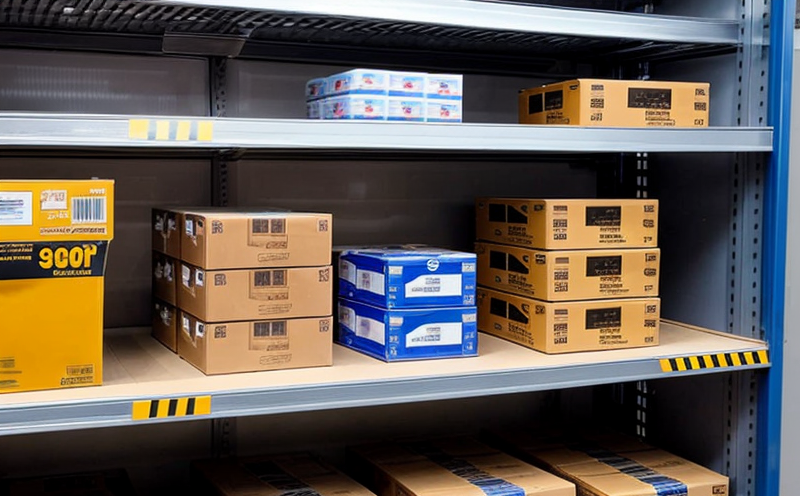ASTM F2054 Creep-to-Failure Packaging Seal Testing
The ASTM F2054 test is a critical procedure used in medical device testing to evaluate the integrity and performance of packaging seals. This method ensures that the sealing process meets regulatory standards, which are essential for maintaining the sterility and safety of the packaged medical devices.
During this test, specimens undergo both initial loading to establish an initial seal and subsequent cyclic loading at a specified temperature until failure occurs. The testing apparatus used in ASTM F2054 is designed specifically for this purpose, providing precise control over environmental conditions such as temperature and humidity. This ensures that the results accurately reflect real-world storage scenarios.
The primary goal of conducting an ASTM F2054 test is to determine whether a packaging seal can withstand the expected stress without compromising its integrity. By simulating actual usage conditions, this testing helps manufacturers identify potential weaknesses in their design early on, allowing for necessary improvements before product release.
A successful result indicates that there would be no significant risk of microbial contamination or other issues during storage and distribution. Conversely, failure suggests further investigation into the seal's formulation, manufacturing process, or environmental factors affecting it.
Testing according to ASTM F2054 is not only beneficial for ensuring product safety but also crucial in meeting regulatory requirements set forth by various organizations like FDA (Food and Drug Administration), EU-MDD (European Union Medical Device Directive), and other national authorities worldwide. Compliance with these standards enhances trust among consumers, healthcare providers, and regulatory bodies alike.
For quality managers, compliance officers, R&D engineers, and procurement professionals involved in medical device development, understanding the nuances of ASTM F2054 can greatly enhance decision-making processes related to packaging integrity testing.
Applied Standards
| Standard | Description |
|---|---|
| ASTM F2054 | American Society for Testing and Materials (ASTM) standard procedure for creep-to-failure testing of packaging seals. |
Benefits
The ASTM F2054 test offers several advantages that make it an indispensable tool in the medical device industry:
- Enhanced Product Safety: Ensures that packaging remains intact throughout its lifecycle, reducing risks associated with microbial contamination.
- Regulatory Compliance: Helps meet stringent requirements imposed by global regulatory bodies like FDA and EU-MDD.
- Improved Quality Control: Identifies design flaws early on, enabling timely adjustments to improve product performance.
- Cost Efficiency: By identifying issues during development stages rather than later in the production cycle, companies save costs associated with rework or recalls.
In summary, ASTM F2054 plays a pivotal role in safeguarding medical devices against potential hazards while facilitating compliance with international standards. Its implementation contributes significantly to enhancing overall product quality and reliability.
International Acceptance and Recognition
The ASTM F2054 test enjoys widespread acceptance across numerous countries due to its rigorous methodology and consistent results. Regulatory agencies worldwide regard it as a reliable indicator of packaging seal integrity, thereby fostering confidence among stakeholders.
Countries such as the United States, European Union member states, Canada, Japan, Australia, and many others recognize ASTM F2054 as a valid means for assessing packaging performance in medical devices. This international acceptance underscores its importance within the global healthcare industry.
Adhering to this standard demonstrates a commitment to excellence, which can be particularly advantageous when seeking certifications or approvals from different regions. It also helps build trust between manufacturers and end-users by ensuring that products meet stringent quality standards.





